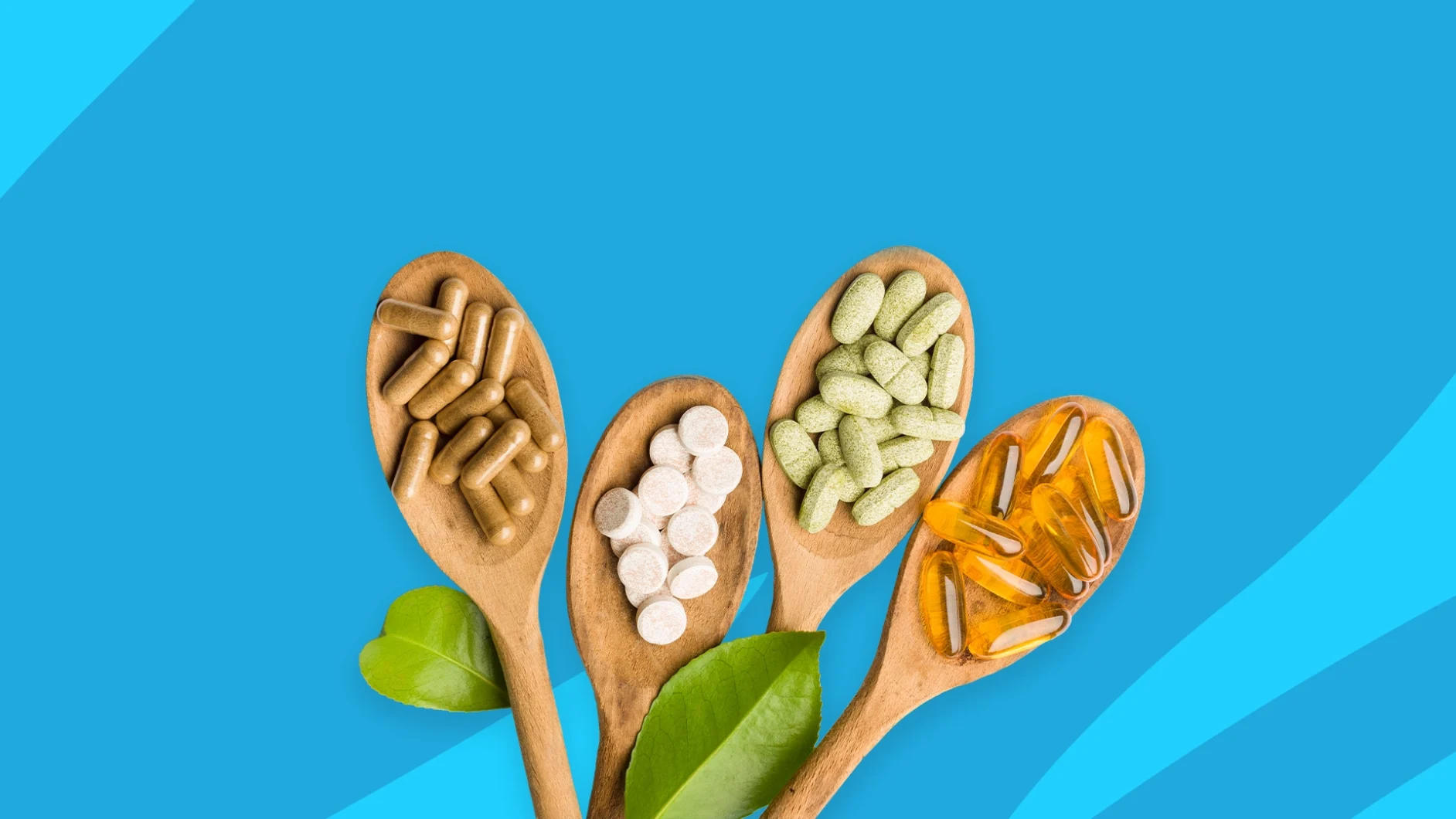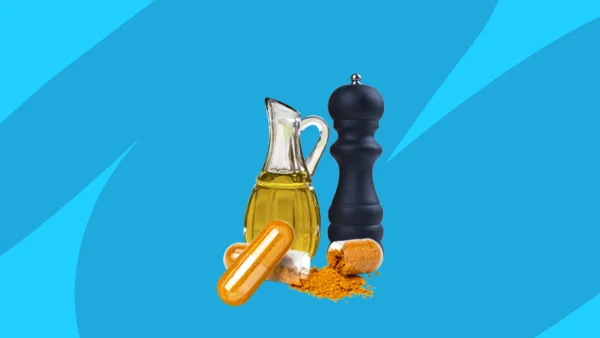Testosterone is a hormone produced by the testicles that affects many types of bodily functions in men, including the development of the reproductive system, the building of lean muscle mass and red blood cells, and healthy sexual functioning. An insufficient amount of testosterone is often called male hypogonadism or “low T.”
There are many causes of low testosterone levels, from simple aging to serious illness to chronic health conditions like obesity and diabetes. Sometimes, men may address the causes of low T by raising testosterone levels with medical treatments and supplementation. In fact, the market for testosterone supplements, a.k.a. “T boosters,” is booming: in 2022, global sales of testosterone supplements reached nearly $73 million and are projected to keep growing.
But do these supplements actually work, and are they safe? Here’s what you need to know about the effectiveness of using supplements to increase testosterone levels, as well as the six supplements with the most scientific evidence supporting their use.
RELATED: How to make sure you absorb your supplements
Can supplements increase testosterone?
There are dozens of supplements on the market today claiming to have positive effects on testosterone levels and conditions like erectile dysfunction, but the truth is there isn’t a lot of evidence proving that taking vitamins or other supplements can promote higher testosterone levels in any meaningful way.
For example, a recent 2020 study found that less than 25% of the 50 testosterone supplements evaluated had scientific research backing their positive effects on testosterone (even though nearly all of them—90%—purported to boost T). Meanwhile, more than half of the supplements evaluated had no clear scientific evidence recommending their use.
Does that mean all T-booster supplements are a waste of money? Not necessarily; there are a few vitamins and minerals that do have research supporting their use, so it’s important to know what ingredients are contained in any supplement you’re taking and be able to parse out catchy marketing claims from actual evidence.
6 supplements to increase testosterone
If you’re looking to take a supplement that’s expert-approved and backed by research, you can start with any of the following vitamins and minerals (as long as your healthcare provider has indicated these are safe for you to use).
1. Magnesium
Magnesium supplementation may be effective in increasing healthy testosterone levels, especially when combined with consistent exercise, says Kimberley Wiemann, MS, RDN, a registered dietitian in Long Island, New York.
In a 2011 study, Wiemann explains, magnesium supplementation increased testosterone levels in sedentary and active men, with men who exercised daily having a greater increase in testosterone levels than those who didn’t. In that study, participants took 10 milligrams of magnesium per kilogram of body weight each day, but Wiemann notes this formula could cause you to take far more than the recommended daily allowance of magnesium per day for adult men (between 400 and 420 milligrams).
“A 175-pound man would be supplementing with nearly 800 milligrams of magnesium,” she says, warning that this level of supplementation could cause irregular heartbeat, slowed breathing, and low blood pressure, and should be discussed with a healthcare provider before starting.
2. Zinc
Zinc plays an important role in regulating male hormones and, according to Jed Kaminetsky, MD, urologist and medical director of Manhattan Medical Research, it appears that zinc has a positive effect on the cells in the testes that produce testosterone. A 2022 study suggests that zinc deficiency can decrease testosterone—and a zinc supplement could boost it—but many of the studies reviewed were on animals. While it seems like zinc might be helpful, the evidence for supplementation is lacking.
Still, if you’re interested in trying zinc to boost your T, Dr. Kaminetsky recommends taking 11 milligrams per day. Be careful if you’re taking certain antibiotics, such as tetracyclines and quinolones, though: he says zinc is known to decrease how much of the antibiotic the body absorbs.
3. Ashwagandha
Dr. Kaminetsky says the antioxidant properties in ashwagandha, a shrub from the nightshade family, are thought to protect the testes from oxidative damage and may also increase the production of luteinizing hormone, both of which allow for better testosterone production.
Based on the amount used in most studies related to boosting T levels, Dr. Kaminetsky suggests taking a minimum of 250 milligrams of ashwagandha per day. That said, ashwagandha extract may not be safe to take with certain medications.
“Taking [it] with sedative medications, such as benzodiazepines, may cause breathing problems and too much sleepiness,” says Dr. Kaminetsky, “[and] if taken with diabetes medications, it may cause blood sugar levels to drop too low.”
4. Fenugreek
The herb fenugreek is often promoted as a non-medicinal way to help lactating mothers produce more breastmilk, but it may boost testosterone levels, too. According to Dr. Kaminetsky, fenugreek contains plant-based compounds called saponins that may cause an increase in testosterone production, though you would likely have to take between 500 and 600 milligrams per day.
However, Dr. Kaminetsky notes that when taken with medications that slow blood clotting, like warfarin, fenugreek extract may increase the chances of bruising and bleeding.
5. Vitamin D
Some T boosters include vitamin B6 and B12, but the evidence points more strongly to the use of vitamin D in naturally improving men’s overall health. Men with vitamin D deficiency may have low testosterone levels. Meanwhile, a 2011 study found that men taking vitamin D had higher levels of total testosterone and free testosterone than men in the placebo group. In that study, men took 3,332 IU of vitamin D every day for one year.
However, the effect of vitamin D supplementation on testosterone isn’t confirmed; other studies have not had similar results as the 2011 study. A 2019 study, for example, had participants take 20,000 IU of vitamin D weekly for 12 weeks, but no significant increase in testosterone levels was measured at the end of the study.
6. Tongkat ali
Tongkat ali, sometimes called longjack, is an Asian botanical ingredient contained in many over-the-counter testosterone boosters. It’s an herbal remedy often used for infertility and sexual dysfunction in other countries, but its use in supplements is still relatively new and unstudied. A 2022 review of studies, though, does show promise: seven of the nine studies reviewed showed an increase in testosterone levels after supplementation with tongkat ali.
Because this research is still fairly new, it’s unclear what an appropriate dosage of tongkat ali would be, but studies have tested daily doses between 100 and 600 milligrams. It’s also unclear how much tongkat ali is too much; some study participants in the 2022 review reported side effects of itching and GI distress at higher levels. In addition, tongkat ali may increase the effects of blood sugar medications like metformin and decrease the absorption of a blood pressure medication called propranolol.
What are the best supplements to increase testosterone?
Based on what our experts have shared, all of these natural testosterone boosters have some body of evidence supporting their health benefits, but a few clearly have more than others. Fenugreek, tongkat ali, and ashwagandha, for example, were found to have the strongest evidence out of 10 substances for raising testosterone in a 2021 review.
That doesn’t mean the other testosterone-boosting supplements on this list couldn’t help raise your T, but that there’s less evidence recommending their use. This could be because the majority of studies were performed on animals, not humans, or because some studies suggest they’re effective while others show no improvement in testosterone levels, prompting experts to call for more research.
If you’re looking for the best supplements for increasing levels of testosterone, fenugreek, tongkat ali, and ashwagandha are some of the most commonly recommended based on research.
What supplements are bad for your testosterone?
Dr. Kaminetsky says there isn’t much information on any specific vitamin or nutrient decreasing testosterone, but there have been studies on other dietary substances and lower levels of this hormone.
Alcohol, for one, has been shown to decrease testosterone in high amounts, according to a 1998 study and a newer 2022 study. Various other studies, Dr. Kaminetsky points out, have found a possible connection between diets high in bread, pastries, and trans fats and lower testosterone levels in men, suggesting that what you eat may play a larger role in reducing testosterone than the supplements you take. As a bonus, decreasing your dietary intake of alcohol and carbohydrates may have other benefits for your overall wellness and sex drive.
How to choose a supplement
Dietary supplements aren’t regulated by the U.S. Food and Drug Administration (FDA), so you may be taking a risk when you choose to add one to your diet. A supplement could contain more or less of a stated ingredient, include ingredients not listed on the package, or instruct you to take more than the daily recommended amount for your age and sex.
“When choosing supplements, be sure to do your research to check on evidence to support your intended outcomes [and] be sure to tell your healthcare provider before starting any new supplementation,” says Wiemann.
In general, it’s a good idea to follow the dosing instructions on a supplement’s package and select a product that’s been third-party-reviewed for safety and quality. But ultimately, any supplement can interact with other medications you take or conflict with existing health conditions, so always get the green light from your healthcare provider before adding one to your diet.
Sources
- Testosterone Booster Supplements Market, Fact.MR (2023)
- ‘Testosterone Boosting’ Supplements Composition and Claims Are not Supported by the Academic Literature, World J Mens Health (2020)
- Effects of Magnesium Supplementation on Testosterone Levels of Athletes and Sedentary Subjects at Rest and after Exhaustion, Biological Trace Element Research (2010)
- Zinc is an Essential Element for Male Fertility: A Review of Zn Roles in Men’s Health, Germination, Sperm Quality, and Fertilization, J Reprod Infertil (2018)
- Correlation between serum zinc and testosterone: A systematic review, Journal of Trace Elements in Medicine and Biology (2023)
- Use of medicinal doses of zinc as a safe and efficient coadjutant in the treatment of male hypogonadism, The Aging Male (2020)
- Fenugreek, Drugs and Lactation Database (2023)
- Relationship of Vitamin D status with testosterone levels: a systematic review and meta-analysis, Endocrine (2020)
- Effect of vitamin D supplementation on testosterone levels in men, Horm Metab Res (2011)
- Effects of vitamin D supplementation on androgens in men with low testosterone levels: a randomized controlled trial, Eur J Nutr. (2019)
- Review on a Traditional Herbal Medicine, Eurycoma longifolia Jack (Tongkat Ali): Its Traditional Uses, Chemistry, Evidence-Based Pharmacology and Toxicology, Molecules (2016)
- Eurycoma longifolia (Jack) Improves Serum Total Testosterone in Men: A Systematic Review and Meta-Analysis of Clinical Trials, Medicina (2022)
- Tongkat Ali Safety: Side Effects & Interactions, The Botanical Institute (2023
- Testosterone Boosters Intake in Athletes: Current Evidence and Further Directions, Endocrines (2021)
- Alcohol’s Effects on Male Reproduction, Alcohol Health Res World (1998)
- Relationship between Alcohol Consumption and Testosterone Deficiency according to Facial Flushes among Middle-Aged and Older Korean Men, Korean J Fam Med (2022)
- FDA 101: Dietary Supplements, U.S. Food and Drug Administration (undated)
- Dietary Supplements: What You Need to Know, National Institutes of Health Office of Dietary Supplements (2023)











